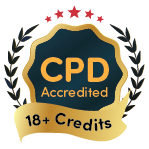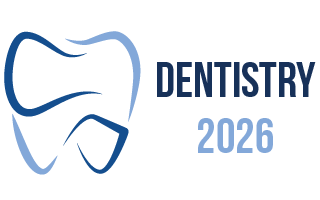3rd European Conference on
Dentistry and Oral Health
May 20-21, 2026 | Barcelona, Spain

Address: Avinguda Del Maresme 78 Ronda De Dalt Exit 15, 08940 Comellà de Llobregat, Barcelona, Spain
Dentistry 2026

Tanta University, Egypt
Abstract:
Background Restoring edentulous patients with dental implants in cases of varying degrees of bone atrophy presents a significant challenge in oral implantology. The long-term success and stability of implants largely depend on the quality and quantity of the supporting bone and surrounding soft tissue. When bone volume is insufficient for implant placement, various bone augmentation techniques and materials can be employed. Among these, guided bone regeneration using the bone shell technique (Khoury technique) is widely utilized for three-dimensional bone augmentation.
Objective To evaluate bone gain using Cone Beam Computed Tomography (CBCT) in cases where the Khoury technique is applied with either autogenous bone blocks or allograft bone blocks in the atrophic anterior maxilla for implant installation.
Materials and Methods Twenty patients with an atrophic anterior maxilla were randomly assigned into two equal groups (10 patients each), based on the graft material used: autogenous bone or allograft bone. The treatment was conducted in three stages: bone augmentation, implant installation, and prosthetic loading. Patients were assessed both clinically and radiographically using panoramic X-rays and CBCT scans immediately after surgery and at 4 months postoperatively.
Results Both groups showed a significant increase in alveolar bone width compared to preoperative values. All 20 implants were placed with adequate primary stability, measured using Osstell. After six months of osseointegration, secondary stability— also measured by Osstell—demonstrated good results in both groups.
Conclusion Both autogenous and allograft bone grafts significantly increased alveolar bone width. The allograft group demonstrated a slightly greater overall width increase, with comparable implant stability between the two groups.
Biography:
Dr. Ahmed Abdellatif Mosleh Abd Elfatah is a Distinguished Lecturer of Oral and Maxillofacial Surgery, specializing in the diagnosis and treatment of complex craniofacial conditions. Holding a BDS, MSc, and PhD in Oral and Maxillofacial Surgery, Dr. Abd Elfatah brings a wealth of expertise and academic rigor to his field. Throughout his career, Dr. Abd Elfatah has been dedicated to advancing the knowledge and practice of Oral and Maxillofacial Surgery. His research contributions are extensive, with numerous scientific manuscripts published in reputable journals, focusing particularly on arthroscopic techniques for temporomandibular joint (TMJ) disorders. As an accomplished speaker, Dr. Abd Elfatah is sought after for his insights and expertise in the field. He has shared his knowledge at various conferences, symposiums, and workshops, inspiring fellow professionals and students alike. Dr. Abd Elfatah's commitment to excellence in education, research, and clinical practice continues to make a significant impact in the field of Oral and Maxillofacial Surgery.
